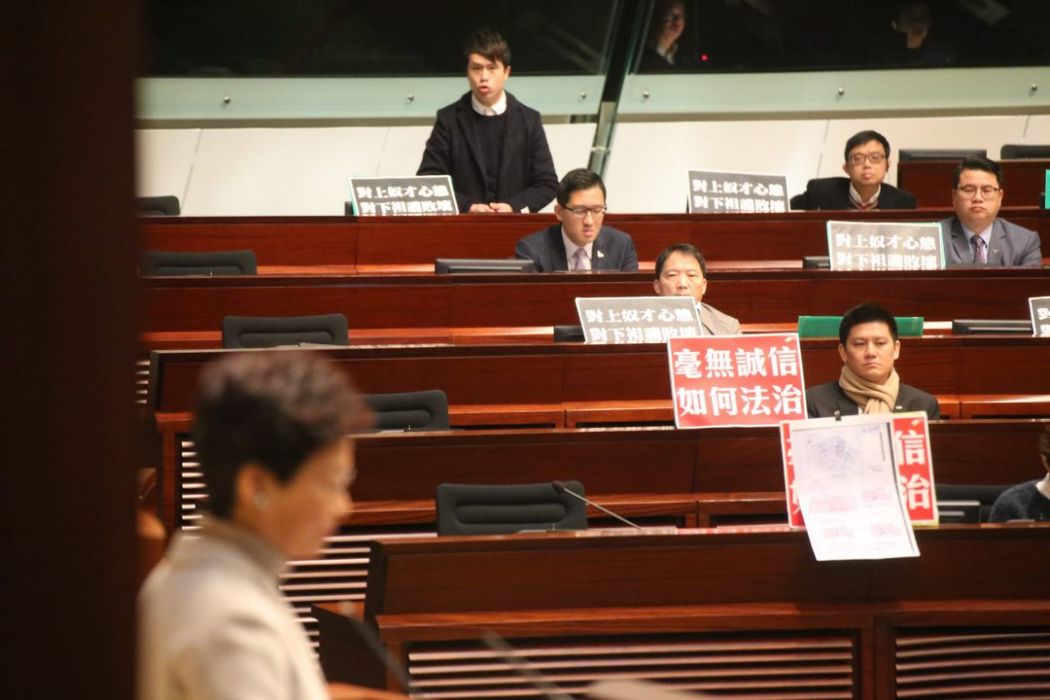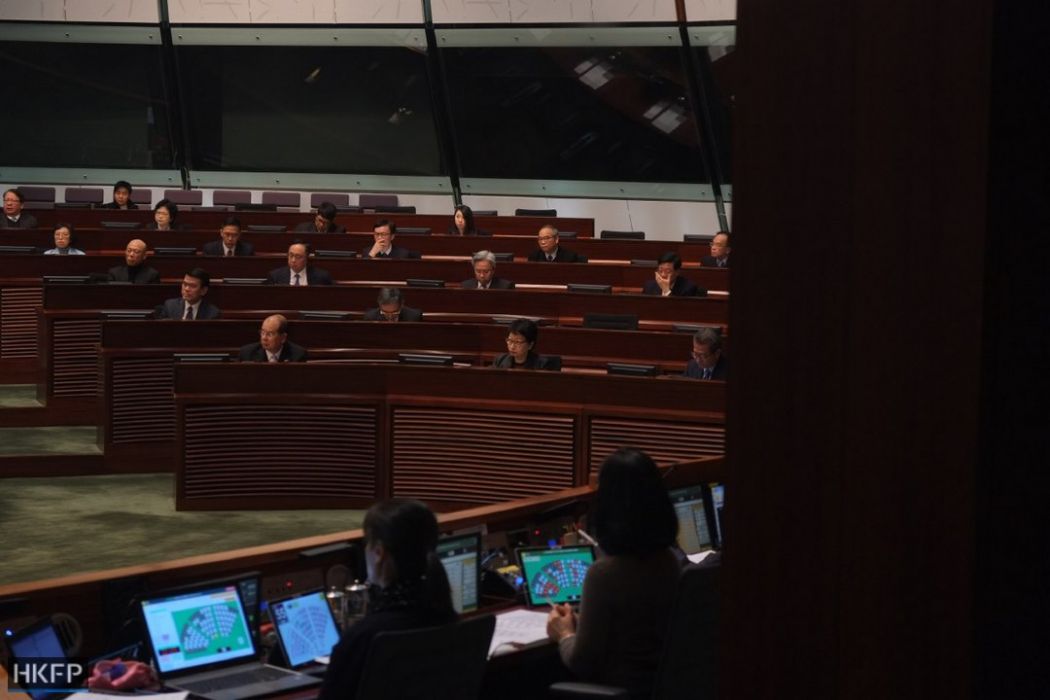Hong Kong leader Carrie Lam has once again dismissed critics of a controversial arrangement to enforce mainland laws at the West Kowloon high-speed rail checkpoint, saying that they did not understand the city’s constitutional order.
Beijing authorised the plan last month, issuing a legal explanation on how it would comply with Hong Kong’s Basic Law. However, legal experts have said that the plan has no legal basis, as Chinese laws cannot be applied in Hong Kong unless they are listed in the constitution’s Annex.

Pro-democracy lawmaker Helena Wong questioned the chief executive at a legislative session on Thursday morning. She said that lawmakers could not pass a local bill authorising the arrangement, which the government will introduce over the next few months.
“When I took my oath of office, I said that I would uphold the Basic Law. Article 11(2) says that no law enacted by the legislature of the Hong Kong Special Administrative Region shall contravene [the Basic Law].”
The mechanism will involve “leasing” land to China across a quarter of the terminal for faster immigration procedures performed by mainland law enforcement agents.

“If you want us legislators to follow the National People’s Congress Standing Committee’s order in December to pass unconstitutional laws, you’re putting us in a difficult position, this is mission impossible.”
‘Irrational and incompatible’
Last month, the chief executive criticised lawyers who opposed the mechanism as possessing an “elitist mentality”, claiming that they thought Hong Kong’s legal system was supreme over that of mainland China. Lam doubled down on her criticism at the legislature on Thursday.

“I feel these [criticisms] are irrational and are incompatible with reality,” she said. “I’ve thought a lot about this, and I can only find one reason [for the criticism].”
“Twenty years after the handover, some people still do not understand – or do not accept – the constitutional order. They only view [the constitutional order] through their own lens.”
Among critics of the arrangement was University of Hong Kong professor Eric Cheung, who alleged last week that the true intention of Beijing’s legal explanation was to subjugate Hong Kong courts, and pave the way for other controversial legislation such as national security laws.
At the legislature, Lam cited fellow professor Albert Chen in saying that the legal and academic sectors should communicate with each other and understand one another’s views.

“I deeply believe that, if this understanding is reached, Hong Kong’s legal sector will no longer believe that the central authorities established the joint checkpoint arrangement arbitrarily, with malicious intentions, or with conspiratorial ends.”
Chen said in a Wednesday interview with HK01 that the checkpoint arrangement still allowed Hong Kong to have a high degree of autonomy because the legislature can vote on whether to authorise it or not.
He compared Beijing’s explanation to those of the United Kingdom’s Privy Council, a pre-1997 handover final appellate court whose decisions were technically not binding, but “highly persuasive” on Hong Kong’s judiciary.
